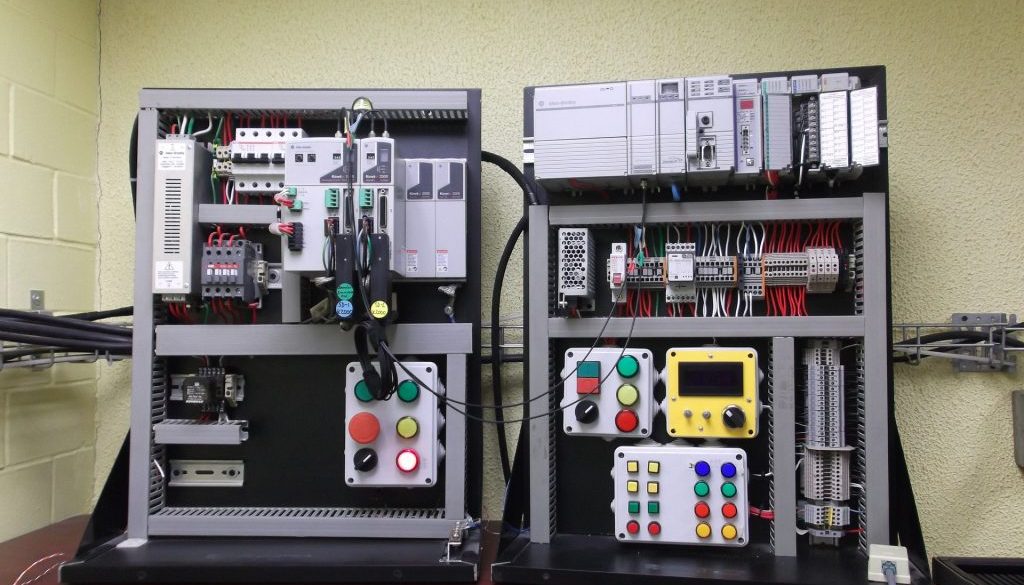The advent of smart factories is revolutionizing the manufacturing landscape, driving efficiency, flexibility, and productivity to unprecedented levels. Central to this transformation are control system integrators, who provide the expertise and technology required to bring these futuristic factories to life. Insights from leading control integrators shed light on the key trends and innovations shaping the future of smart factories.
The Rise of Intelligent Automation
Intelligent automation lies at the core of smart factories. It involves the integration of advanced technologies such as artificial intelligence (AI), machine learning, and robotics into manufacturing processes. Control system integrators are at the forefront of this revolution, designing systems that enable machines to perform complex tasks autonomously while learning and adapting to new situations.
A control integrator company leverages control integrator technology to develop systems that can process vast amounts of data in real-time. These systems use AI algorithms to optimize production schedules, predict maintenance needs, and improve product quality. By implementing intelligent automation, control integrators help manufacturers achieve greater efficiency and reduce operational costs.
Interconnected Systems and the Internet of Things
The Internet of Things (IoT) is another critical component of smart factories. It involves connecting machines, sensors, and devices to create a network that communicates and shares data. Control system integrators play a crucial role in integrating IoT devices into manufacturing environments, ensuring seamless data flow and coordination between different components.
Control integrators utilize control integrator technology to create interconnected systems that provide real-time insights into production processes. This connectivity enables manufacturers to monitor equipment performance, track inventory levels, and optimize energy usage. By harnessing the power of IoT, control integrators enable smart factories to operate with unprecedented efficiency and responsiveness.
Data-Driven Decision Making
Data is the lifeblood of smart factories. The ability to collect, analyze, and act on data is essential for optimizing operations and driving continuous improvement. Control system integrators excel in implementing data-driven solutions that provide manufacturers with actionable insights.
A control integrator company integrates advanced data analytics tools with manufacturing systems, enabling real-time monitoring and analysis of production metrics. This data-driven approach allows manufacturers to identify inefficiencies, predict maintenance needs, and make informed decisions that enhance productivity. Control integrators ensure that data is accurate, relevant, and accessible, empowering manufacturers to achieve their operational goals.
Customization and Flexibility
The future of manufacturing demands customization and flexibility. Smart factories must be able to adapt to changing market demands and produce customized products efficiently. Control system integrators are adept at designing flexible systems that can accommodate these requirements.
Control integrator technology allows for the seamless integration of new equipment and processes with existing systems. This flexibility is crucial for manufacturers looking to upgrade their operations without significant disruptions. Control integrators provide scalable solutions that can grow with the business, ensuring long-term success in a dynamic market environment.
Enhancing Operational Efficiency
Operational efficiency is a key driver of competitiveness in the manufacturing industry. Control system integrators enhance efficiency by designing systems that optimize resource utilization, reduce downtime, and streamline production processes.
Control integrators utilize advanced control integrator technology to create automated systems that can self-diagnose and adjust in real-time. These systems identify and eliminate bottlenecks, ensuring smooth and efficient operations. By leveraging the expertise of control integrators, manufacturers can achieve higher levels of productivity and reduce operational costs.
Improving Safety and Compliance
Safety and compliance are critical considerations in smart factories. Control system integrators implement systems that enhance workplace safety and ensure adherence to regulatory standards. By incorporating safety protocols and fail-safes into control systems, control integrators help prevent accidents and minimize the risk of operational disruptions.
A control integrator company is well-versed in industry standards and regulations, ensuring that all implemented systems comply with relevant guidelines. This expertise is crucial for manufacturers operating in highly regulated sectors. Control integrators provide solutions that meet the highest safety and compliance standards, protecting both employees and the business.
Driving Innovation and Continuous Improvement
The future of smart factories is characterized by continuous innovation and improvement. Control system integrators are key partners in driving this progress. By staying at the forefront of technological advancements and industry trends, control integrators ensure that manufacturing operations remain competitive and efficient.
Control integrator technology evolves rapidly, and control integrators continuously upgrade their skills and knowledge. They work closely with manufacturers to implement the latest innovations and best practices, driving continuous improvement in operational efficiency. This commitment to innovation is essential for maintaining competitiveness in a rapidly changing market.
Control system integrators are instrumental in shaping the future of smart factories. Their expertise in intelligent automation, IoT integration, data-driven decision making, customization, and safety ensures that smart factories operate with maximum efficiency and flexibility. As manufacturing continues to evolve, the role of control integrators will be critical in driving innovation and maintaining operational excellence.











